Fifteen Minutes of Fame
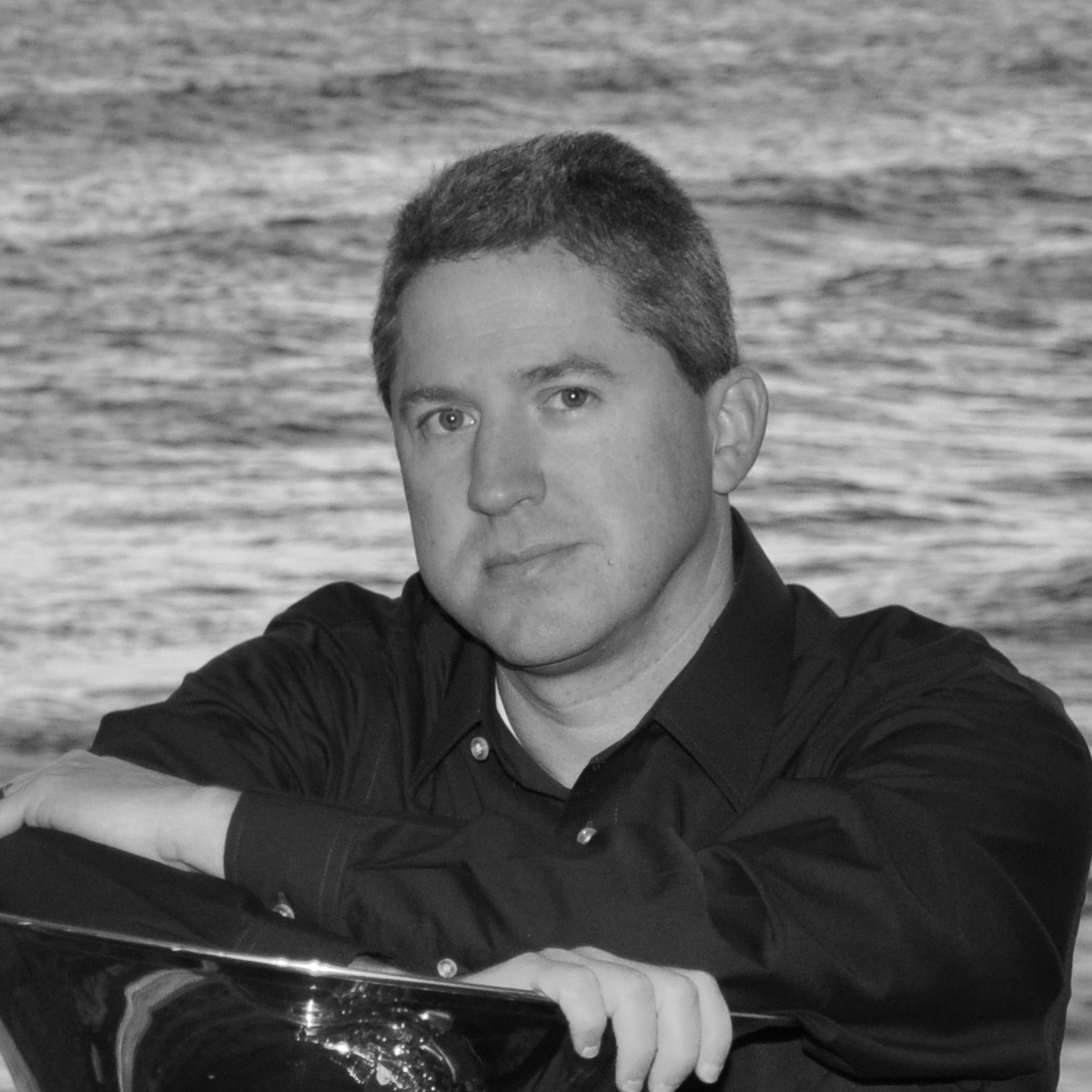
Fifteen Minutes of Fame: with Kenyon Wilson
Dr. Wilson holds positions as principal tubist with the Tuscaloosa Symphony Orchestra in Alabama and the Augusta Symphony Orchestra in Georgia. He has performed solo recitals in Canada, Japan, Azerbaijan, Georgia, and Armenia in addition to presenting recitals in thirty-six states in the USA. He has soloed with the Augusta Symphony, Waco Symphony, Queen City Brass Band, Clinch River Brass Band, Blasmusik Texas Brass Band, and the Asahikawa Symphonic Band in Japan.
Concert Dates
- May 23. 2014 - Ford Hall, Indiana University
15 one-minute selections for Piano Pinnacle
-
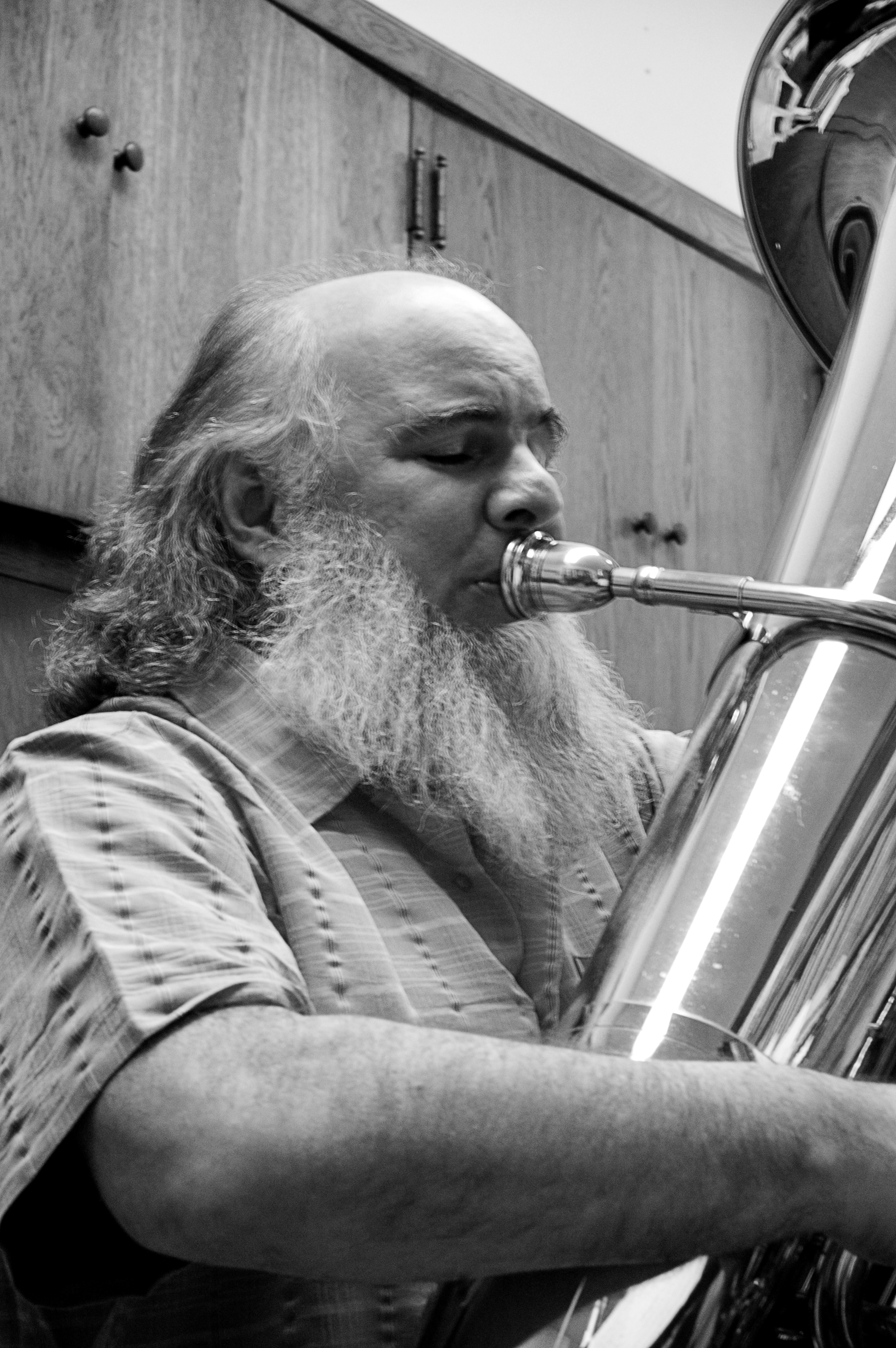
Night Dance
Joe L. Alexander
Joe L. Alexander’s music has been performed throughout the United States and Germany. He is a Professor of Music at Louisiana Tech University where he teaches Theory, Composition and Low Brass. Alexander holds a DMA from the University of North Texas.
Night Dance is my second attempt at a Fifteen-Minutes-of-Fame composition. It was with great pleasure that I wrote this piece for a wonderful musician and friend, Kenyon Wilson.
-

Petite Valse Romantique
David Avshalomov
Composer/conductor/singer David Avshalomov writes in an accessible neo-Romantic, modern-tonal style, displaying a lyric gift and rhythmic vitality in his works for choirs, voice, chamber ensembles, band, and orchestra, earning numerous regional commissions and national awards. His music is performed across the US and Europe, and recorded on Albany and Naxos.
I kept the start of this melody in my sketchbook for years because I liked the lyrical side of the tuba, and have met many tubists having a sentimental feeling for phrasing that is generally untapped in large ensembles. Hence this romantic little ABA waltz, whose time has come.
-
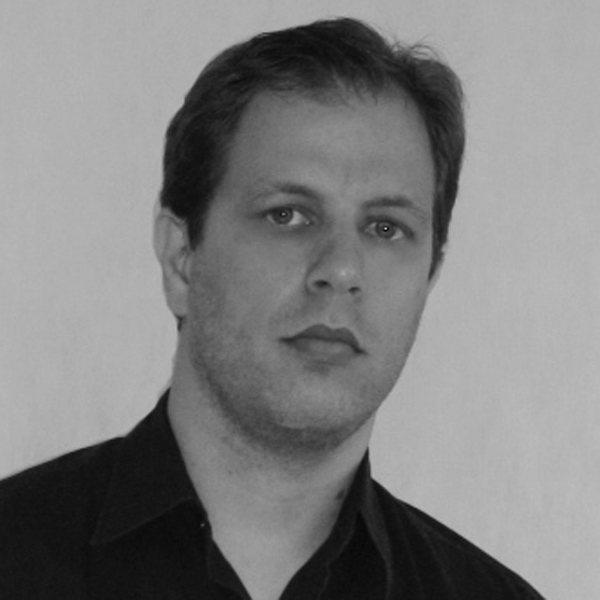
The urban sculpture
Rodrigo Baggio
His music has been performed in many cities around the world such as São Paulo (Brazil), Paris (France), Quebec (Canada), Bremen (Germany), London (England), Bucharest (Romania), Vermont, New York and Washington DC (USA). As a performer, he has played concerts in different countries of the globe.
"The urban sculpture" was written as a contemplation on an urban sculpture, observing and analyzing all its aspects – its shape, its color, its texture, its components and its meaning ... and the message that is being communicated.
-
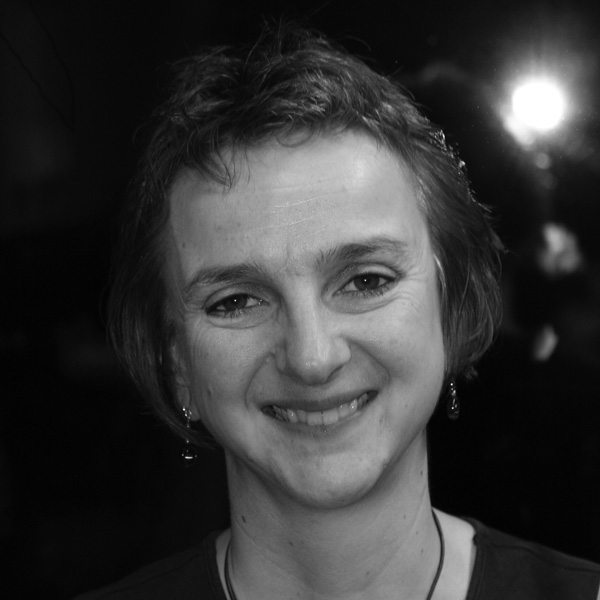
Tubalosity
Kay Charlton
Kay Charlton is a trumpet player and composer who lives and works in London, UK. She teaches brass and class music in schools and plays with Bollywood Brass Band professionally. She has written 'Bollywood Blast', a series of tutor books for brass and woodwind and has had pieces published by Trinity College London.
'Tubalosity' is inspired by the versatility of the tuba sound – that of the funky bass and the melodic voice. The player should imagine they are playing both parts simultaneously as though the bass line is there all the way through, in the style of singer Bobby McFerrin. -
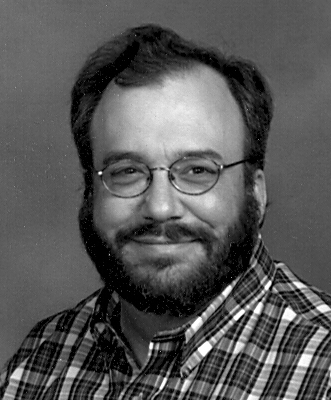
Mangle
David Bohn
David Bohn received degrees in composition from the University of Wisconsin, University of Wisconsin-Milwaukee, and the University of Illinois. He currently resides in West Allis, Wisconsin, and is the music director at St. John's Lutheran Church in West Milwaukee. He is the President of the Wisconsin Alliance for Composers.
A portrait of a high-school tubist who heard a recording of Albert Mangelsdorff.
-
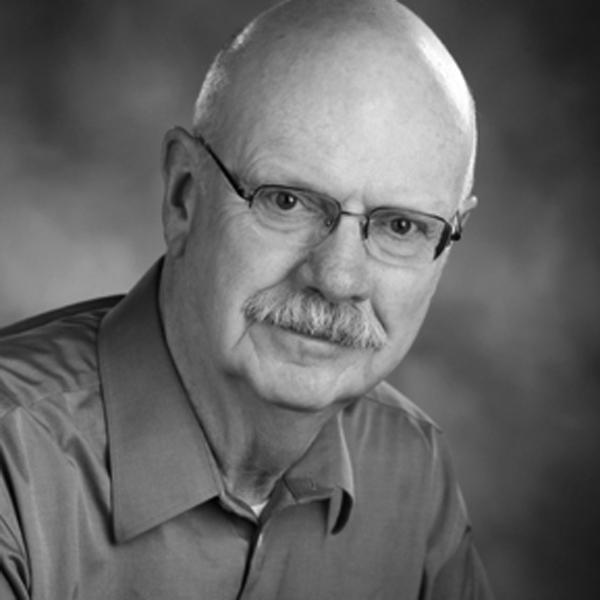
Rumble In The Jungle
Gary A. Edwards
Gary A. Edwards was a tuba prodigy, graduated from Indiana University, where he knew Bill Bell. He taught public school music and has played in ensembles of various sizes from single to symphonic, most genres. He has written seven musicals and hundreds of pieces of music. www.EdwardsMusicSite.com
Rumble In The Jungle, conveys the image indicated by the title and the frenetic pace of the low tuba notes of the fight for survival by mankind in a chaotic world fraught with unpredictable danger.
-

Affinity
Nicole DeMaio
Nicole DeMaio (b. 1991) is a New Jersey based musician and is primarily a clarinetist. She is currently studying at the John J. Cali School of Music within Montclair State University for degrees in Music Education and Music Theory & Composition. Nicole has garnered many accolades for her music and has recently won the New Jersey Arts Collective's Pictures Composition Contest (with honorable mentions in 2010 and 2011).
“Affinity” is a simple love song for unaccompanied tuba. The work shows off the upper range of the instrument that is often ignored yet quite beautiful. -
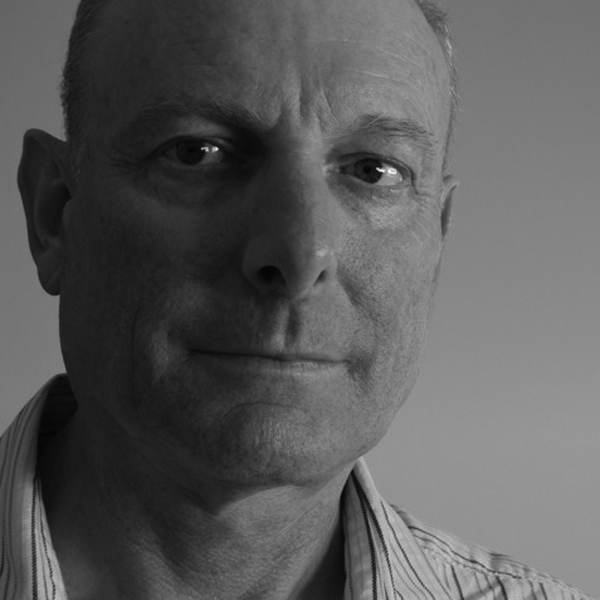
Frogs
Matthew Hetz
Matthew Hetz, a Los Angeles native, began piano lessons at age 16. Hetz began playing the violin at age 23, and is primarily self-taught. He studied composition with Marshall Bialovsky, Cal State Dominguez Hills. He is president/executive director of the Culver City Symphony Orchestra. He is an environmental and mass transit advocate.
In Los Angeles, the development of Playa Vista is on the grounds of what was Howard Hughes Aircraft. The area's small stream and cliffside have been returned to more natural states. I walk through the grounds, I hear the frogs. -
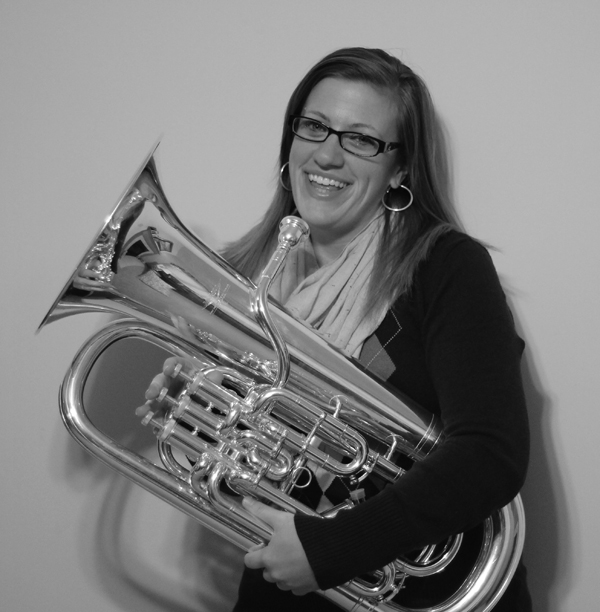
Minute ‘til Midnight
Katie Lyphout
Katie Lyphout is the band director at Glenview Middle School in East Moline, IL. She received her degree in Music Education from Western Illinois University in 2009. Her primary instrument is Euphonium. Ever since high school, Ms. Lyphout has enjoyed composing music in her spare time.
Minute ‘til Midnight for Unaccompanied tuba depicts the hustle and bustle that might occur before the clock strikes twelve at Midnight. Sneaky, suspenseful, and intense…You will hear the “tik tok” sound of the clock ticking shortly before you hear the clock strikes twelve and the piece concludes. -

Don’t be Seen
Joshua Mattison
Joshua Mattison is a fifth year Music major at Louisiana Tech University studying music composition under Dr. Joe L. Alexander. He has had pieces performed on concerts & recitals at Louisiana Tech University, Grambling State University, The University of Louisiana at Monroe, The Bossier Parish Community College, and Tennessee State University.
Don’t be Seen is a short programmatic piece based on a game the composers’ wife played as a child. The game was simple—don’t be seen. The piece was based on a small motive that is introduced in the piece as multi-phonics sung over a held note in the tuba. -
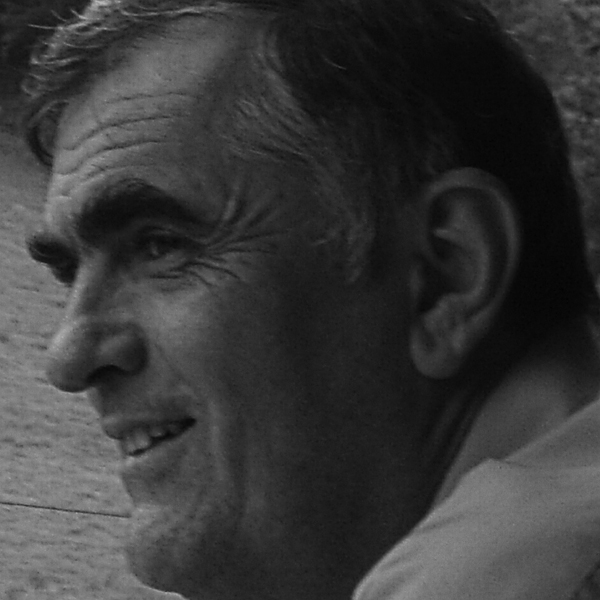
Signals I
Serban Nichifor
Serban NICHIFOR (b. 1954, Bucharest-Romania), American Composer, Prizes: Amsterdam, Tours, Evian, Athens, Urbana-Illinois, Birmingham-Alabama, Toledo, Koln, Karlsruhe, Roma, Trento, Newtown-Wales, Bydgoszcz, Jihlava, Zagreb, a.s.o., Officer of the Order of the Crown, conferred by Albert II, King of Belgium. Over 200 compositions: Symphonic, Vocal-Symphonic, Concertant, Chamber, Vocal, Choral and Computer Music.
“Signals I” for solo unaccompanied tuba – composition dedicated to Maestro Kenyon Wilson and based on some signals of the wind instrument "tulnic" used in the Romanian mountains.
-
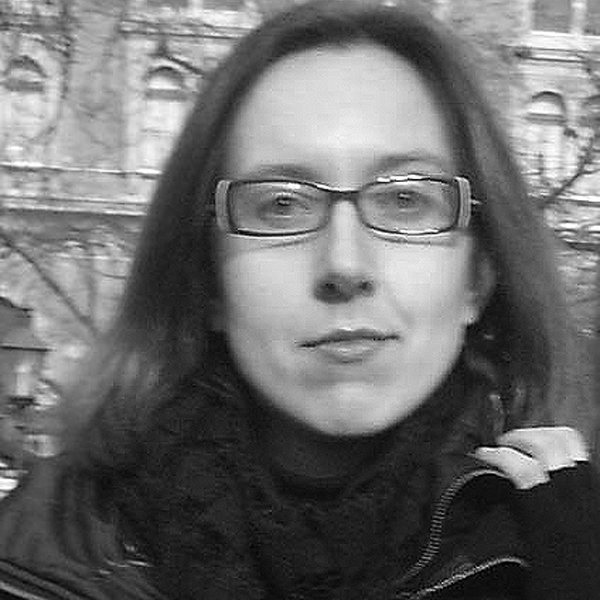
Frog
Elizaveta Sanicheva
Elizaveta is an author of many chamber, symphonic, electronic and opera works, multimedia projects, music for movie, dance and stage performances, instant compositions and live sets. Her works are performed in Russia, Korea, Netherlands, Austria and United States: her music was performed by such musicians as Henri Bok (Netherlands), Asko/Schoenberg ensemble (Netherlands), Studio for New Music (Russia), Moscow Ensemble of Contemporary Music (Russia), etc. Elizaveta Sanicheva was born in Chelyabinsk, Russia. She began her music studies at age 4, and began to write music at age 5. In 1994 she became a winner of the Young Composers' Regional Competition (Grand-Prix). That same year, she was awarded the Chelyabinsk Region Governor Scholarship. In 2001, she graduated from Music College in Chelyabinsk as a musicologist, continued her compositon studies at the Moscow State Conservatory. There Sanicheva took part in the workshops of Klaas de Vries, Guy Rebel and G. Stabler. She also studied harpsichord, organ and orchestral conducting. Her radiant voice allowed her to take part in many contemporary music concerts and competitions, where she performed her own works and as well as the works of other composers. In 2004, she became a participant of world-wide project, "Prometheus", which consisted of five young Russian composers who wrote music to R.G. Mohnnau’s famous poem, "Prometheus". During her conservatory studies, Sanicheva also studied at the jazz college in Moscow with the famous jazz pianist Liev Kushnir. In 2006, Sanicheva graduated from the State Moscow Conservatory, and from 2006 to 2008 worked as a Musical Instruments Chair Assistant at the Moscow State Humanitarian University, where she taught composition, arranging, and her own jazz aesthetics course. In 2007, she became a member of the Russian Composers' Union. In 2008, she received the HSP Huygens Scholarship (Netherlands Ministry of Education, Culture and Science Scholarship) and studied composition and jazz piano at the Rotterdam Conservatory, obtaining her second Masters Degree in composition. Sanicheva has composed many chamber, symphonic and electronic works, multimedia projects, music for film, dance and stage performances, instant compositions and live sets. Her works have been performed in Russia, Korea, the Netherlands, Austria and United States, by such musicians as Henri Bok, Asko/Schoenberg Ensemble, Studio for New Music, and the Moscow Ensemble of Contemporary Music, among others. Her works have been performed at such festivals as Moscow Autumn, Red Sound (Netherlands), and Contemporary Music Daegu Festival (Korea). Sanicheva is currently working as co-author of a book on contemporary composition and improvisation techniques.
-
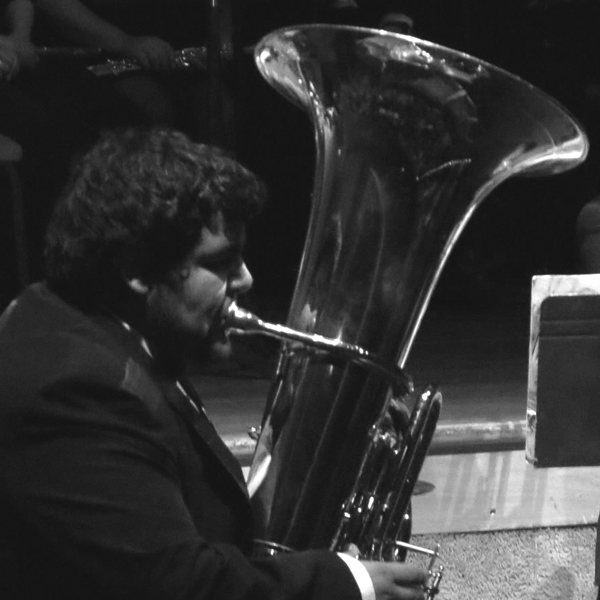
Lullaby for ‘the Offspring’
Johnathan Michael Cruz Segovia
Johnathan Michael Cruz Segovia is a native to San Antonio, Texas and is currently studying as an undergraduate in composition at Texas Lutheran University in Seguin, Texas. Segovia has studied Tuba performance under the San Antonio Brass and with Keith Robinson at Texas Lutheran University.
“Lullaby for ‘the Offspring’” was inspired by the American Punk band “The Offspring”; specifically their song “The Kids Aren't Alright” which deals with the topic of the unfulfilled dreams of youth. The composition pays homage to the original angsty and bitter melody while expanding it into a sorrowful cantabile lullaby.
-

Quick Low Down
Ray Strobel
Ray Strobel studied composition with Leonardo Balada at Carnegie Mellon, receiving degrees in Composition and Music Education. He writes for solo/chamber instruments, band, and both secular and sacred chorus. Ray teaches elementary band at Wilkinsburg School District, and arranges many works for them. He lives just north of Pittsburgh, PA.
Quick Low Down is an up-tempo jazzy tune that is meant to be fun while exploring the versatile range of the tuba. Agility changing registers is needed, as is maintaining the tempo of 208 bpm to play the tune in one minute. -
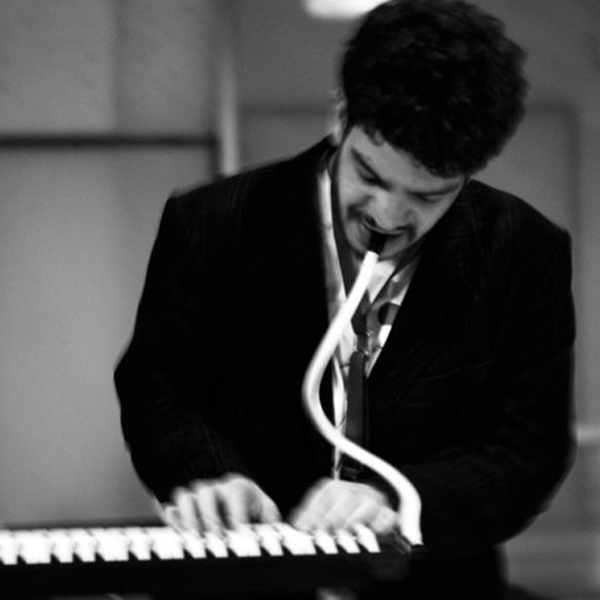
Up and Down
Angelo Ursini
Angelo Ursini is a instrumentist (Sax, clarinet and flute) and composer. Currently living in São Paulo (Brazil) participates in some compositional groups with others composers. Has some research in popular brazilian and Latin-American rithms such as Chorinho, Baião, Maxixe, Cueca, Huayno. Also plays ethnical flutes.
This piece uses the scale dom-dim. The idea was to switch between some groove and the motive that goes up just to fall down.